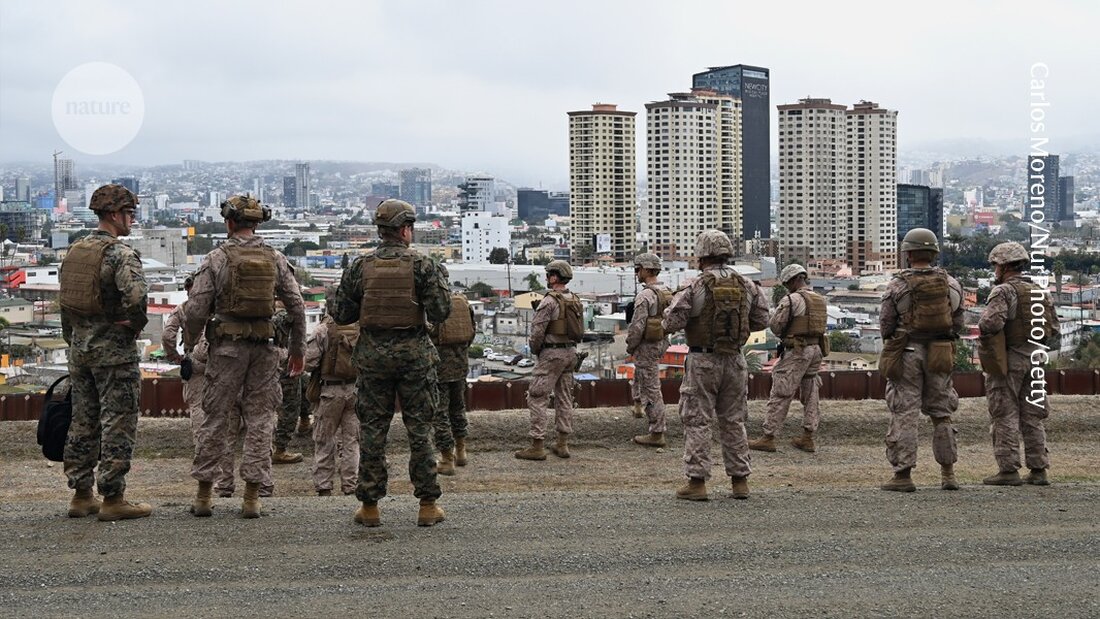US Department of Defense Reduces Research on Emerging Threats: A Worrying Step for National Security
US Department of Defense cuts funding for social research on emerging threats, with far-reaching consequences.

US Department of Defense Reduces Research on Emerging Threats: A Worrying Step for National Security
What are the implications of letting artificial intelligence (AI) make critical life-and-death decisions in combat? That's the question Nicholas Evans, a social scientist at the University of Massachusetts Lowell, asked himself in the hope that his research might provide answers—until funding for his fellowships was cut by the U.S. Department of Defense (DoD) this month.
The grants were among 91 social science studies canceled by the DoD, including many that were part of the Minerva Research Initiative. This initiative supports fundamental social science research to better understand emerging threats to national security.
“A notable aspect” of Minerva is that it “broadly defines” the concept of security, says Leonardo Villalón, a political scientist at the University of Florida in Gainesville who studies the Sahel region of Africa. Minerva grants fund research on global dynamics such as violence, instability, natural disasters, human displacement and migration, he explains.
The Defense Department said in a news release that it is "retiring" its social science research portfolio as part of a broader initiative to ensure fiscal responsibility and prioritize missionary activities. The termination letters, seen by Nature, said the grants no longer met DoD's "program objectives or agency priorities."
“The big challenge,” says Evans, “is that there is almost no other place in the United States where you can get two and a half million dollars for social science research, and that limits our ability to raise funds.” He and his colleagues received a total of $5.3 million in Minerva research grants in 2021 and 2024. With the funding cut, he will lose $4.3 million.
National interest
The Minerva Initiative was launched in 2008, and the grants are administered by research offices operated by the Army, Air Force and Navy. Some of the funding will go toward educating students at U.S. military schools and academies in key areas of the social sciences, and many of these scholarships have also been discontinued.
Neil Johnson, a physicist at George Washington University in Washington, D.C., received termination letters for two fellowships worth about $2.5 million each. One of these, nearing the end of its five-year term, supported research into how threats, hate and extremism spread across online and offline networks. The other focused on security threats along national borders.
“The reasoning was really strange,” Johnson says. For years he participated in calls and briefings at DoD agencies. Among other things, he informed secret service employees at military bases about his research results on the subject of gun violence and the use of weapons in health care. Now it's over, he explains.
Spending money on military preparation — such as armaments and technology — but not on understanding the nature and causes of possible military conflicts is incredibly short-sighted, says Kathy Baylis, a development economist at the University of California, Santa Barbara. “It’s almost incomprehensible,” she adds. The Minerva Research Initiative represents only a fraction of the DoD budget. In its 2024 budget request, the department requested $64.3 million for Minerva out of a total of $842 billion.
Baylis also lost her Minerva scholarship. Awarded in 2023, it allowed her to study the impact of climate shocks on food security in sub-Saharan Africa. It was initially guaranteed for three years, with the option of an additional two years. Following Minerva's losses and cuts to U.S. Agency for International Development grants, Baylis has lost about $5 million in recent weeks. Since then, she has been searching for funds to pay salaries and find ways to share the limited data she and her team have collected. “They just wasted a lot of money that was spent on research that can no longer be done,” she says.
Villalón, who studied the impact of climate events on societies in the Sahel and their responses to change, had already spent most of the $1.6 million he was awarded as a three-year grant in 2022. He and his team only had about $200,000 left, which would be used to support data analysis and publication.

 Suche
Suche
 Mein Konto
Mein Konto
